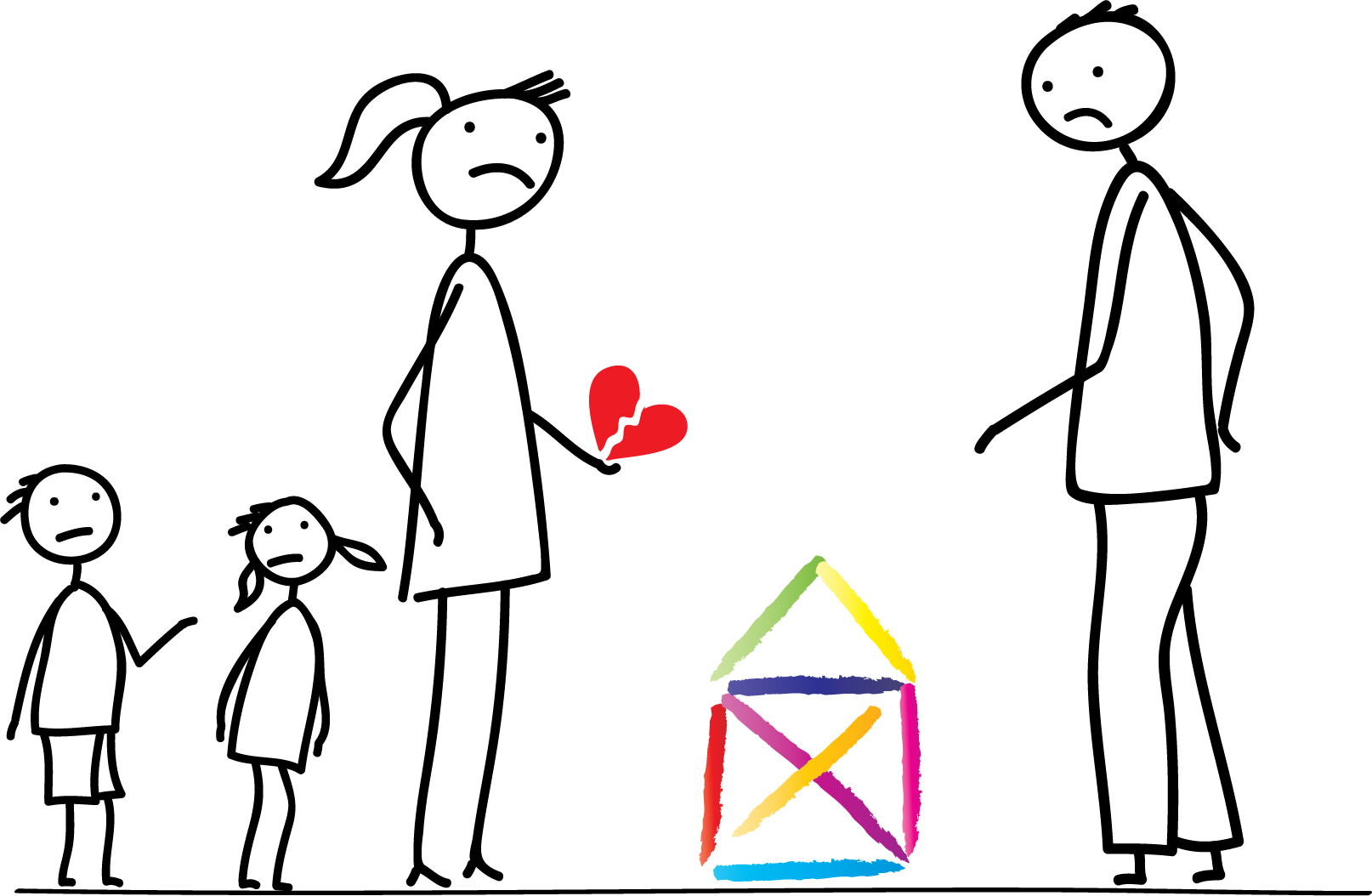These comments are comments from children that participated in the D.C. Court Family Program called PAC (Program for the Agreement of Contested Custody). Currently, anyone with a contested custody dispute in Family Court must come to this Family Education Program. Roberta Eisen created, implemented, and taught the program.
Presently, parties filing any type of custody dispute in D.C. are required to attend a parenting education seminar, while at the same time, the children involved in their dispute are requested to attend a children’s seminar, for children between the ages of 6 to 15 years old.
All of the facilitators are mental health professionals with a minimum master’s level mental health degree and are trained to teach a curriculum about all different kinds of families. This is especially important, given our current day state of reality. The goal of the program is to help parents and family members to be enlightened with information and tools.

Here is what the facilitators asked the children:
If you could make one wish in your family, one thing that we could tell your parents to make it better for you/the children, what is your wish?
Here is what the children of D.C. had to say:
-
“Always listen to your children.”
-
“Get along with each other for me.”
-
“Never leave your child behind.”
-
“Talk to your children, even if you don’t live with them.”
-
“Love all your children equally.”
-
“Remember that children need both parents.”
-
“Set a positive example for your children.”
-
“Do not argue in front of your children.”
-
“Don’t take out your frustrations with each other on me.”
-
“Don’t scream at the people you love.”
-
“Let your children develop their own relationships with a step mom/dad.”
-
“Never make your children feel they are not important.”
-
“Be kind to one another.”
-
“Think before you act- you’re my role model.”
-
“Give me lots of hugs and kisses.”
-
“Don’t put your children in the middle of things.”
-
“When you’re mad, don’t take it out on your children.”
-
“Use appropriate language around me.”
-
“Talk to your children and ask them how they are doing?”
-
“Don’t make your children choose sides.”
-
“Don’t let your children stay in dangerous environments.”
-
“Don’t say mean or bad things about the other parent.”
-
“Listen to your children.”
-
“Even if you don’t live with your children, you can still participate in their school activities.”
-
“Talk to your children about their feelings, negative and positive.”
-
“Spend quality time with your children.”
-
“Don’t leave your children angry.”
-
“Visit your children during the week and on the weekends.”
-
“Praise your children for the good things they do.”
-
“Encourage your children.”
-
“Think about how your actions will affect your children.”
-
“Don’t be a friend; be a parent.”
-
“Stop disagreeing and be the bigger person.”
-
“Remember, I love both parents and want a relationship with both parents.”
-
“Don’t forget about your child.”
-
“Work together.”
-
“Keep your promises.”
-
“Let’s spend more family and quality time together.”
-
“Don’t be selfish.”
-
“Do what you say you’re going to do and be consistent.”
-
“Take care of your children.”
-
“Love your child no matter what they go through.”
-
“Let the entire family get along.”
-
“Hug your children.”
-
“No fighting.”
-
“Don’t tell your children personal things about the other parent.”
-
“Be a positive role model for your children.”
-
“Ask your children about their feelings.”
Children need to be heard. The saddest part about family disputes is either the parents cannot hear or do not want to hear what their kids have to say to them.
Today is an opportunity to pay attention to your children’s needs. The time is now. You are your children’s family forever.
More than half the children in the U.S. will experience their parent’s separation before the age of 16 — more than any other country in the western world. – SPLIT
SPLIT is a deeply personal film that explores the effects of divorce on children. The film features twelve children aged 6-12, who explore the often frightening and always life altering separation of their parents. As you face the difficult decisions ahead, we encourage you to gather all of the tools you need to be prepared for the journey ahead.
It is not the divorce itself that impacts your children, but rather how you, as parents, handle the divorce. We hope you will explore these options to help you and your family navigate this transition.
*A 2009 study completed by the American Psychological Association supported the validity of parent education in our culture. Although this program targets families that are requesting the Court’s intervention, families can benefit from this program. The PAC Program continues. To learn more, visit dccourts.gov/superior-court/family-court-operations.

